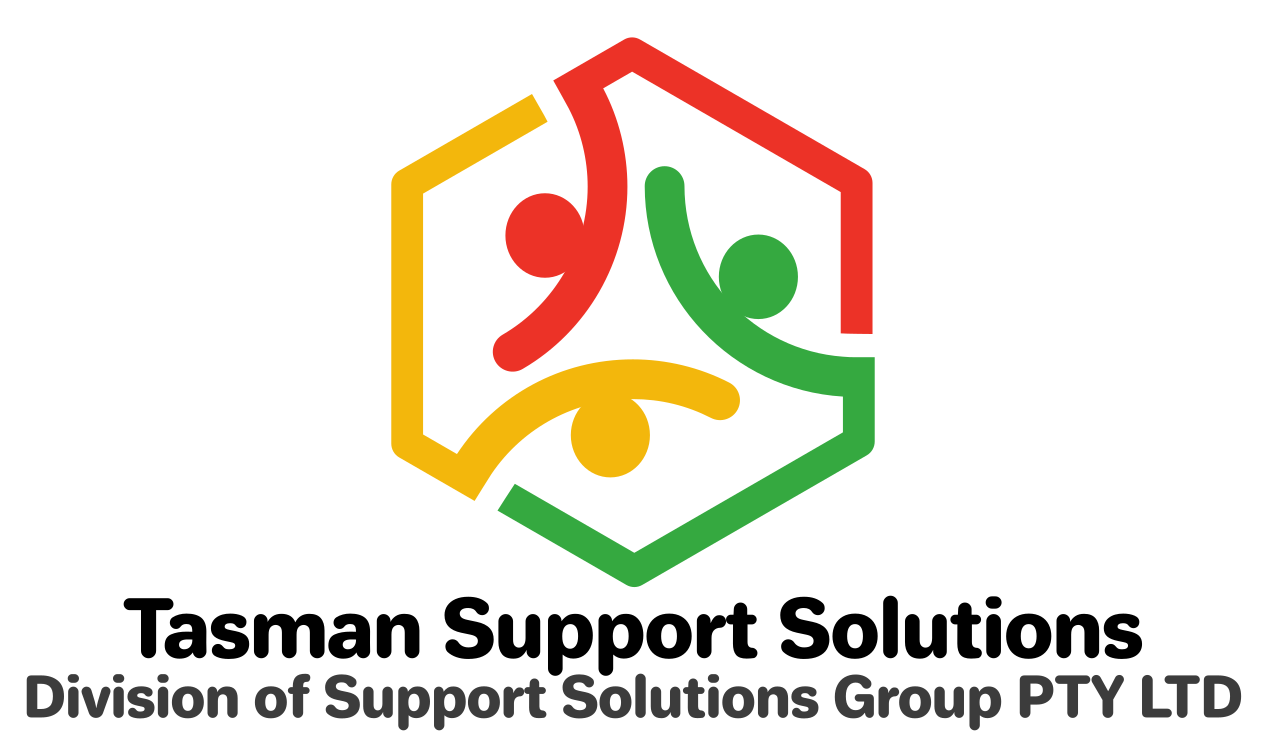
Welcome to Support Solutions, a leading provider of NDIS supports for individuals with complex and challenging behaviours. Our team offers tailored and effective supports using evidence-based interventions and therapies. We work closely with clients, families, and support networks to promote greater independence.
Behaviour Support
How we can assist

How We Support Complex Behaviours
Supporting People with Disability and Behaviours of Concern: A Positive Behaviour Support Approach
A Positive Behaviour Support (PBS) approach is crucial to managing behaviours of concern in individuals with disability. PBS aims to identify the reasons for the behaviour and develop strategies to support the individual to achieve their goals while reducing the likelihood of the behaviour occurring. PBS is person-centred, evidence-based, and relies on ongoing data collection and analysis to monitor the effectiveness of the support provided.
At Tasman Support Solutions, our staff are trained in PBS and work collaboratively with the participant, their family, and support network to develop and implement a PBSP. This plan outlines the strategies to be used when the participant exhibits behaviours of concern, including de-escalation techniques and alternative coping mechanisms. Our team is equipped to respond to times of crisis, using techniques such as verbal and physical de-escalation, to ensure the safety of the participant and others.
We recognise the importance of ongoing evaluation and monitoring of the PBSP. Our staff record incidents of behaviours of concern and provide feedback to the behaviour support practitioner. This allows for the ongoing evaluation of the effectiveness of the PBSP and the identification of any necessary adjustments to the support provided.
At Tasman Support Solutions, we understand that behaviours of concern can have a significant impact on the quality of life of individuals with disability and their support networks. Our team is committed to providing person-centred, evidence-based, and effective supports to promote the achievement of the participant’s goals while reducing the likelihood of the behaviour occurring. We believe that every individual has the right to live a fulfilling life and will work tirelessly to ensure that our supports promote this.
Being Proactive – Not Reactive
Our Approach
When supporting individuals with disability who exhibit behaviours of concern, it is important to adopt a proactive approach rather than a reactive one. At Tasman Support Solutions, our support workers are trained to be proactive in their approach to behaviour support, ensuring that participants are engaged in activities that align with their interests, and that strategies outlined in their Positive Behaviour Support Plan (PBSP) are implemented early to prevent escalation of behaviours.
A proactive approach to behaviour support has several benefits, including:
- Prevention of Behaviours of Concern Proactive behaviour support strategies can help to prevent behaviours of concern from occurring in the first place. By identifying triggers and developing strategies to address them early, support workers can redirect participants to activities that are engaging and meaningful to them, reducing the likelihood of challenging behaviours.
- More Positive Interactions A proactive approach to behaviour support involves creating positive and supportive environments that promote positive interactions. Participants are more likely to feel valued and respected when their support workers are proactive in identifying and addressing their needs, leading to a more positive and productive relationship between the participant and their support worker.
- Reduced Risk of Harm By implementing PBSP strategies early and escalating situations in a timely manner, support workers can reduce the risk of harm to the participant and others. A proactive approach ensures that participants receive the support they need before a situation escalates and becomes more challenging to manage.
At Tasman Support Solutions, our support workers are trained to be proactive in their approach to behaviour support. We understand that each participant has unique needs and challenges, which is why we work closely with them, their families, and support networks to develop and implement personalised PBSPs. Our support workers are trained to recognise and respond to early warning signs of behaviours of concern, implementing strategies to redirect participants to more positive activities and environments. We also ensure that the PBSP is regularly reviewed and updated based on feedback from the participant and their support network.

